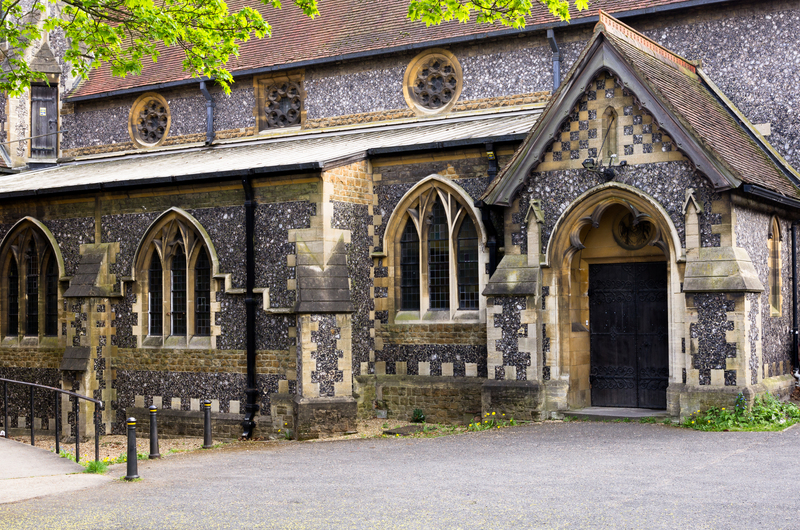How to Ensure Your Piano Survives the Move--Without Doing It Yourself
Moving a piano is a major operation--one that requires skill, planning, and the right equipment. If you're facing a relocation and hoping to keep your prized piano in perfect shape, it's essential to know that this isn't a task to DIY. Whether you own a cherished upright, a delicate baby grand, or a majestic concert grand piano, improper moving can lead to costly damage--or even irreparable harm. In this comprehensive guide, we explain how you can ensure your piano survives the move without doing it yourself, and offer expert tips on choosing professional services, preparing your instrument, and understanding every step in the process.
Why Not Move Your Own Piano?
It's tempting to enlist friends and a rental truck for your move, but moving a piano safely requires much more than manpower. Pianos are not only extraordinarily heavy (an upright can weigh 300-500 lbs, while a grand piano can surpass 1,200 lbs), but they're also incredibly delicate. Components like the legs, pedals, strings, hammers, and the intricate inner mechanisms are susceptible to even slight mishandling.
- Risk of injury: Lifting and moving a piano can cause serious back strain, crushed fingers, or worse if not performed properly.
- Piano damage: Dropping, bumping, or improper lifting can result in broken legs, damaged casters, cracked soundboards, or destroyed keys.
- Property damage: The odds of scuffed walls, scratched floors, and wrecked stair railings are high when non-professionals try to move a piano.
In short, investing in professional piano moving services is the safest way to protect both your instrument and your home--and to preserve your peace of mind.

Selecting the Right Piano Moving Professionals
If you want your piano moved safely and securely--without doing it yourself--the choice of moving company is critical. Professional piano movers have the expertise, equipment, and insurance needed for the job. Here's how to select the best service for your needs:
1. Search for Specialized Experience
Not all movers are equal. Look for companies with a proven track record in piano moving. Specialized movers have handled thousands of instruments and are familiar with unusual circumstances--like tight staircases, historic homes, and delicate antiques.
- Check that the movers are licensed and insured.
- Read reviews and testimonials about their piano moving experience, not just general moving services.
- Ask for references from past piano moving clients.
2. Evaluate Their Equipment and Methods
A true piano moving expert will have specialized tools, such as:
- Piano skids and dollies designed to distribute weight evenly.
- Padding and wraps to protect the finish and delicate parts.
- Heavy-duty straps and ramps for secure movement over stairs or uneven surfaces.
Ask your movers to explain their process for moving your particular type of piano.
3. Discuss Insurance and Liability Coverage
Even professionals can encounter the unexpected. Ensure the moving company includes adequate insurance for your instrument's replacement value. Ask explicitly:
- What does their insurance cover?
- Is there a deductible for claims?
- Can you purchase additional coverage?
Preparing Your Piano for the Move
The right preparation can make a world of difference in keeping your piano safe during transit. While your movers will handle the heavy lifting, here's what you can do to get ready--without any heavy lifting yourself:
- Clear the path: Take note of entryways, hallways, staircases, and corners that the movers will need to navigate. Remove any tripping hazards or decorative items from the route.
- Measure access points: Confirm the piano will fit through all doors, stairs, and elevators. Share these measurements with your moving team in advance.
- Communicate details about your piano: Tell your movers the piano's make, model, size, and any unique features (antique, concert grand, etc.) so they can be fully prepared.
- Remove fragile or personal items from atop or inside the piano bench.
The Piano Moving Process Explained
Top-rated piano movers follow an exacting method to ensure safe relocation. Here's what you can expect on moving day:
- Arrival and Inspection: Movers will arrive at the scheduled time, review the route, and assess your piano's condition. They may take photos for documentation.
- Preparation for Moving: The movers will secure the piano lid (using locking straps or padding), wrap the piano in protective blankets, and secure loose parts.
- Positioning and Lifting: Using skids, dollies, and several trained movers, they'll lift and carefully maneuver the piano out of your home. Special attention is paid to stairs, narrow doorways, or elevators.
- Loading for Transport: The piano will be secured in the moving truck to prevent any shifting during travel. Uprights and grands are positioned differently to reduce risk.
- Unloading and Placement: Upon arrival at your new location, the process reverses--your piano is carried in, unwrapped, and placed exactly where you wish.
Throughout the move, professional movers are trained to communicate and coordinate at every step to maximize safety.
Understanding the Risks: What Can Go Wrong?
While professional movers minimize hazards, it's important to understand the risks associated with moving a piano without professional help--so you know why expert services are worthwhile:
- Internal damage: Sudden jostling can break the frame or loosen tuning pegs, requiring expensive repairs.
- Finish and surface marring: A bump against a wall may leave a deep scratch or chip in the lacquer, especially on a glossy grand piano.
- Misalignment or tuning loss: Even if the piano survives outwardly, it can go badly out of tune or become unplayable if not properly moved.
- Serious personal injury: Untrained attempts may result in back injuries or more severe accidents.
Packing and Environmental Tips: Keeping Your Piano Safe
Protection isn't just about lifting and carrying--it's about shielding your piano from environmental threats during the move.
- Avoid extreme temperatures and humidity swings: Always plan to move your piano when weather permits. Changes in humidity can warp wood or crack the finish.
- Use proper coverings: Movers should wrap your piano in heavy moving blankets and sometimes even plastic sheeting for extra moisture protection.
- Don't store in garages or basements: Ask your movers if temporary climate-controlled storage is available if there's a gap between move-out and move-in.
What to Do After the Move: Piano Care and Tuning
Even the most expertly moved piano will need time to acclimate to its new home. Here are expert tips for post-move care:
- Let your piano settle: Give your instrument a few days to adjust to new humidity and temperature before making any adjustments.
- Schedule a professional piano tuning: Most pianos require tuning after a move because transportation and environmental changes affect the strings' tension.
- Inspect for any damage: Examine the body, legs, keys, and pedals for scratches, dings, or issues missed during the move. If you see anything, discuss with your mover or insurance provider.
- Position carefully in your new home: Avoid direct sunlight, radiators, vents, or exterior walls to prolong the piano's life and maintain its sound quality.

Frequently Asked Questions about Professional Piano Moving
How much does it cost to move a piano?
Piano moving costs vary based on size, distance, steps, special obstacles, and origin/destination logistics. Local apartment moves can cost as little as $200-$400, while long-distance or complicated jobs (e.g., grand pianos, spiral stairs, tight corners) can exceed $1,000. Request a written quote to know exactly what to expect.
Can regular movers move pianos?
While some standard movers can handle upright pianos, delicate and expensive instruments (especially grand pianos or antiques) deserve the expert care only a specialized piano moving company can provide.
Will moving my piano void the warranty or affect resale value?
Improper handling can threaten both the warranty and your instrument's resale value. Always use professionals with the right equipment and insurance.
How far in advance should I schedule a piano move?
Book your piano movers as soon as you know your moving dates. Reputable companies fill up quickly, especially during peak moving seasons.
Is it safe to move a piano upstairs or downstairs?
With the right expertise and equipment, professionals can do so safely. Never attempt to move a piano up or down stairs without expert help.
Conclusion: Protect Music, Memories, and Investment--Trust Professionals
Your piano is more than a piece of furniture--it's the heart of your home, a repository of memories, and a valuable asset. When it's time to relocate, don't take chances: hire expert piano movers to ensure your instrument survives and thrives in its new home. Let the professionals handle the logistics, physical risks, and delicate artistry required to move your piano safely.
Avoid the common DIY mistakes, safeguard your piano's condition, and provide yourself with peace of mind. With the right team, careful planning, and ongoing care, your piano will bring beautiful music to your new space for many years to come.
- Choose movers who specialize in piano moving
- Communicate all details and measure access points in advance
- Protect your instrument with insurance and post-move tuning
Ensure your piano's safe journey--not by doing it yourself, but by choosing trusted professionals.



